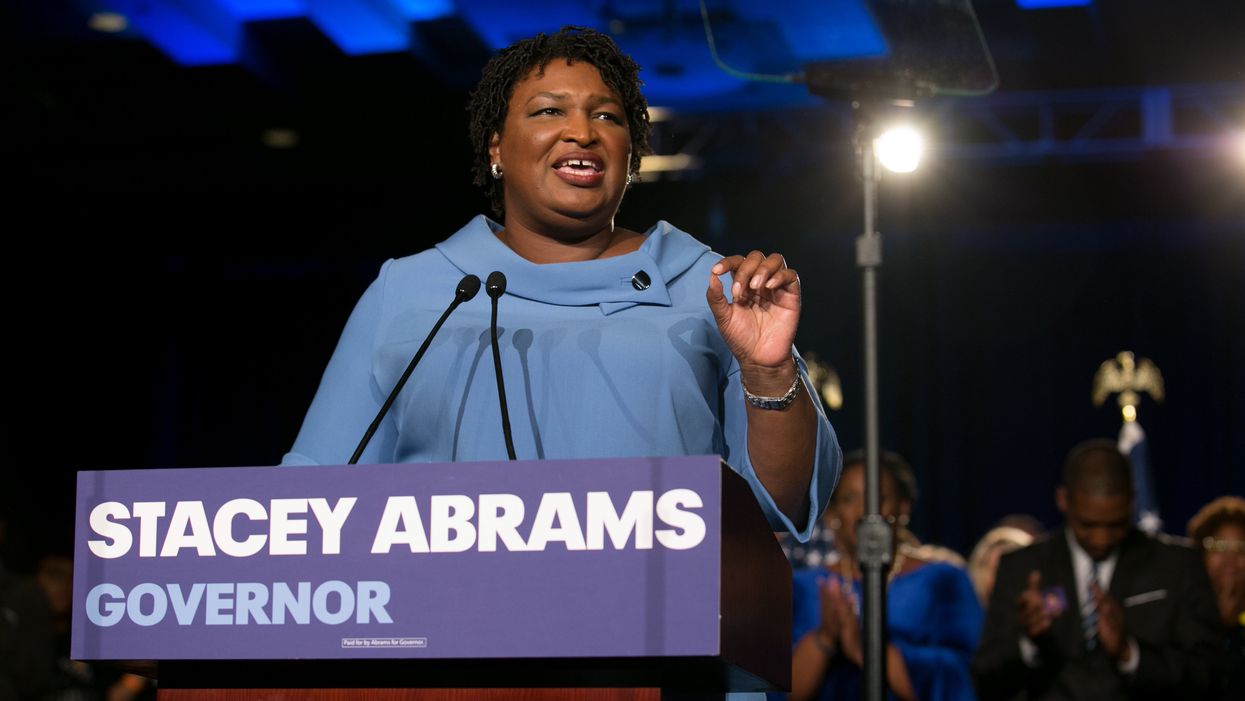Georgia's plans to remove at least 300,000 names from the voting rolls before the primary in March are badly flawed and should be delayed or dropped altogether, one of the country's most renowned nonpartisan civic activist groups says.
The national League of Women Voters and its Georgia chapter have made that request to the Republican secretary of state, maintaining the biggest problems are with the state's policy of cancelling registrations of people simply because they haven't voted in five years.
The state's plan, announced two weeks ago, is getting heightened scrutiny because the primary could be a turning point in the Demoratic presidential contest and there will be three important races next fall: The parties will be competitive in a tight contest for Georgia's 16 electoral votes and both Senate seats. Republicans have won every statewide contest since 2004 but the record could be threatened if there's a big turnout from Democrats who have not been regular ballot-casters.
"Georgia's policy should be to encourage infrequent voters to participate in our democracy, not further alienate infrequent voters by purging them from the rolls and putting up another obstacle to further participation," the groups wrote in a letter last week drafted by the Campaign Legal Center, a democracy reform advocacy group.
Secretary of State Brad Raffensperger had not replied as of Friday morning.
Purging voter lists has historically been used to deny minorities the opportunity to vote. Often the people removed from the rolls don't realize it until they arrive to vote.
Danielle Lang, the CLC's co-director of voting rights and redistricting, said the biggest concern is for the estimated 100,000 who could lose their ability to vote in Georgia in 2020 only because they have not voted in the previous two federal elections.
This "use it or lose it" method for managing the rolls, the letter states, does not focus on those who legitimately should be removed — people who have moved, died, gone to prison or are otherwise no longer eligible to vote.
Two years ago Georgia culled 534,000 names from the rolls — 20 percent of them only for failure to vote in recent elections. A subsequent study found that most of those 107,000 ended up re-registering in the same county where they were listed before the purge. This helps illustrate "that the 'use it or lose it' program is not only bad policy but also violates the constitutional rights of Georgia citizens," the letter argues.
Stacey Abrams, whose narrow loss for governor of Georgia a year ago was accompanied by many allegations of voter suppression, has sued in federal court challenging several aspects of the state's voting laws including the one the League of Women Voters is fighting.
The Georgia law was changed this year to allow the process of removing a voter from the registration rolls to begin after five years of not voting instead of three. The law also created a new system under which the state tells inactive voters they'll be purged unless they speak up within 30 days. At a minimum, the League of Women Voters says, the time for replying to the notice should be doubled.




















Trump & Hegseth gave Mark Kelly a huge 2028 gift